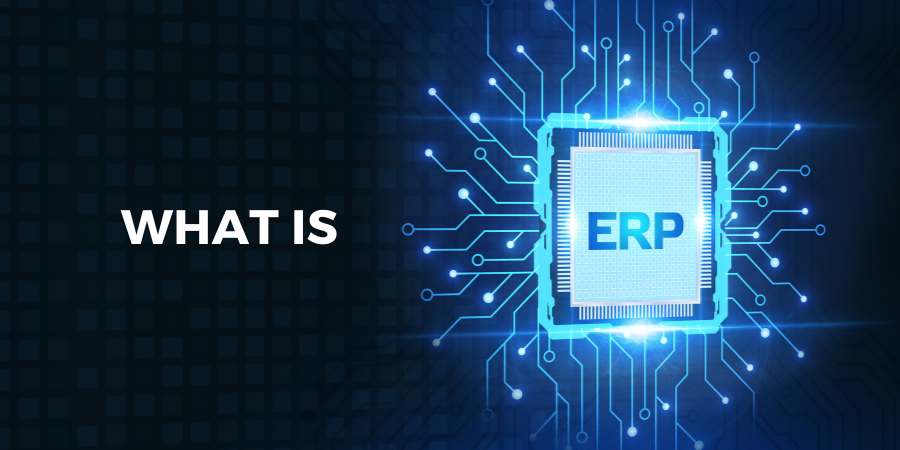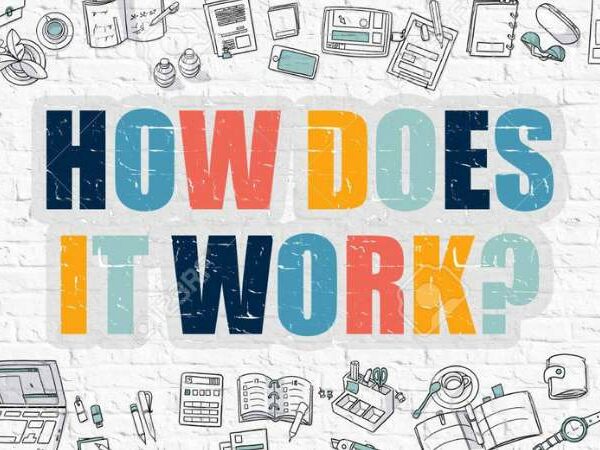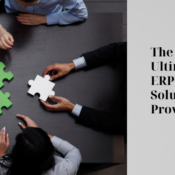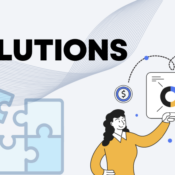What is ERP? How does it work?

08/12/2023
/
What is ERP? How does it work?
Are you feeling overwhelmed by the chaos of running your business? Do you wish you had a simple and smart way to manage all your operations, from finance to manufacturing, from sales to customer service, from inventory to procurement and more? If you answered yes, then you need an ERP solution. But what is an ERP system, and how can it transform your business?
In this blog post, we will explain everything you need to know about ERP software, including what it is, what types of ERP systems exist, and how an ERP solution works.
 For instance, taking the example of the Logway ERP solution applied to Powertech, a manufacturer of VCB panels, the modules helped the company as follows:
For instance, taking the example of the Logway ERP solution applied to Powertech, a manufacturer of VCB panels, the modules helped the company as follows:
What is ERP?
ERP, or enterprise resource planning, is a software solution designed to streamline an organization's fundamental business processes. These encompass areas like finance, accounting, human resources, manufacturing, supply chain, sales, procurement, and inventory management. By implementing an ERP system, businesses can integrate their data into a single, reliable source. This leads to improved accuracy, cost reduction, heightened productivity, and informed decision-making. Apart from its main functions, an ERP solution has many useful tools and features:- Keeping Data Safe: ERP systems use security measures like passwords, backups, and recovery to stop unauthorized users from accessing data. People in charge can control who gets to see and use the data.
- Growing with the Company: ERP systems can get bigger as the company gets bigger. This means they can add more parts, users, and features without causing problems.
- Putting Data in One Place: ERP systems store all data in one organized way, which helps avoid mistakes, copying the same data, and confusion. This makes it easy to share information between different parts of the company.
- Changing as Needed: ERP systems can be changed to fit exactly what the company needs. They can also work together with other important programs or systems.
- Seeing How the Company is Doing: ERP systems show how well the company is doing right now. They can make reports and graphs to show things like money earned, profits, and how happy customers are.
- Less Work by People: ERP systems can do jobs that are done a lot, like checking accounts, making invoices, processing orders, and tracking inventory. This helps the company work faster and save time and money.
- Managing Risks: ERP systems help watch out for problems that could harm the company. They have ways to make sure rules are followed, keep an eye on things, and find unusual things that might be bad.
Types of ERP
There are several types of ERP systems available today, broadly categorized into four main groups.-
On-premises ERP
This variant involves installing the ERP software on your organization's own servers and hardware, situated at your physical location. Managing and updating the system, either independently or with external assistance, is your responsibility. This type provides increased control and data security but demands higher initial investments and dedicated IT resources.
-
Cloud-Based ERP
In this form, the ERP software is hosted on the vendor's servers and accessed through the internet. Users pay a subscription fee for usage and rely on the vendor for system maintenance and updates. Cloud-based ERP systems offer greater scalability and flexibility, but their performance hinges on the vendor's reliability and service availability.
-
Hybrid ERP
This version combines aspects of both on-premises and cloud-based solutions. Organizations can decide which modules or functions to operate on-premises and which to run in the cloud based on their specific requirements and preferences. Hybrid ERP systems offer enhanced customization and integration opportunities but may also involve higher complexity and expenses.
-
Industry-Specific ERP
Tailored to particular industries or sectors like manufacturing, retail, healthcare, and education, this type of ERP system is designed to fulfill the unique challenges and demands of those sectors. It provides specialized features that align with industry requirements, although it might restrict expansion or diversification options.
How does it work?
An ERP solution works by connecting all the different departments and functions of your organization on a single platform that shares a common database. This allows the data to flow seamlessly and accurately between different processes and users. For instance, taking the example of the Logway ERP solution applied to Powertech, a manufacturer of VCB panels, the modules helped the company as follows:
For instance, taking the example of the Logway ERP solution applied to Powertech, a manufacturer of VCB panels, the modules helped the company as follows:
- Sales: This tool facilitates the management of customer orders, tracks sales leads, generates quotes and invoices, and handles sales contracts. Additionally, it offers insights to enhance sales strategies.
- Production: The production tool assists in scheduling manufacturing tasks, tracking work orders, managing resources, and overseeing material usage. This results in improved production efficiency.
- Purchase: Concerning procurement and suppliers, this tool handles purchase orders, monitors supplier performance, and keeps track of inventory levels. It contributes to cost savings and ensures a consistent supply of materials.
- Inventory Management: This tool is dedicated to inventory operations, providing real-time updates on stock levels, movement of items, and item availability. It mitigates the risk of shortages, reduces inventory costs, and ensures timely order fulfillment.
- HR Administration: This tool manages employee information, attendance records, payroll processing, and HR policies. It enhances workforce efficiency and ensures compliance with labor regulations.
Recent Posts
Monika Narriya/0 Comments
Why are ERP solutions important in the education sector?
Monika Narriya/0 Comments
Which is the best ERP solution provider company?
Monika Narriya/0 Comments
How do we select the right ERP solution for our businesses?
Sumit Kumar/0 Comments
9 Most In-Demand Programming Languages for 2024
Sumit Kumar/0 Comments
Best Time to Post on Social Media – 2024 Guide
Sumit Kumar/0 Comments
Why You Should Consider Semantic HTML for SEO
All Categories
- Bing
- Blockchain
- Blog
- Branding
- Case Study
- Content Marketing
- Conversion Rate Optimization
- Cryptocurrency
- Digital Currency
- Digital Marketing
- Email Marketing
- ERP Solutions
- Facebook Marketing
- Google Ads
- Google Updates
- Graphic Designing
- Hire Developers
- Image SEO
- Influencer Marketing
- IT
- Local SEO
- Machine Learning
- Mobile Application Development
- Pay Per Click
- Pinterest SEO
- Podcast Hosting
- React JS
- Reddit & Quora
- Search Engine Optimization
- SEO Copywriting
- Social Media Marketing
- Software
- Software Development
- Technology
- UX and UI
- Web Designs
- Web Hosting
- Website Development
- Website Redesigning
- YouTube SEO








